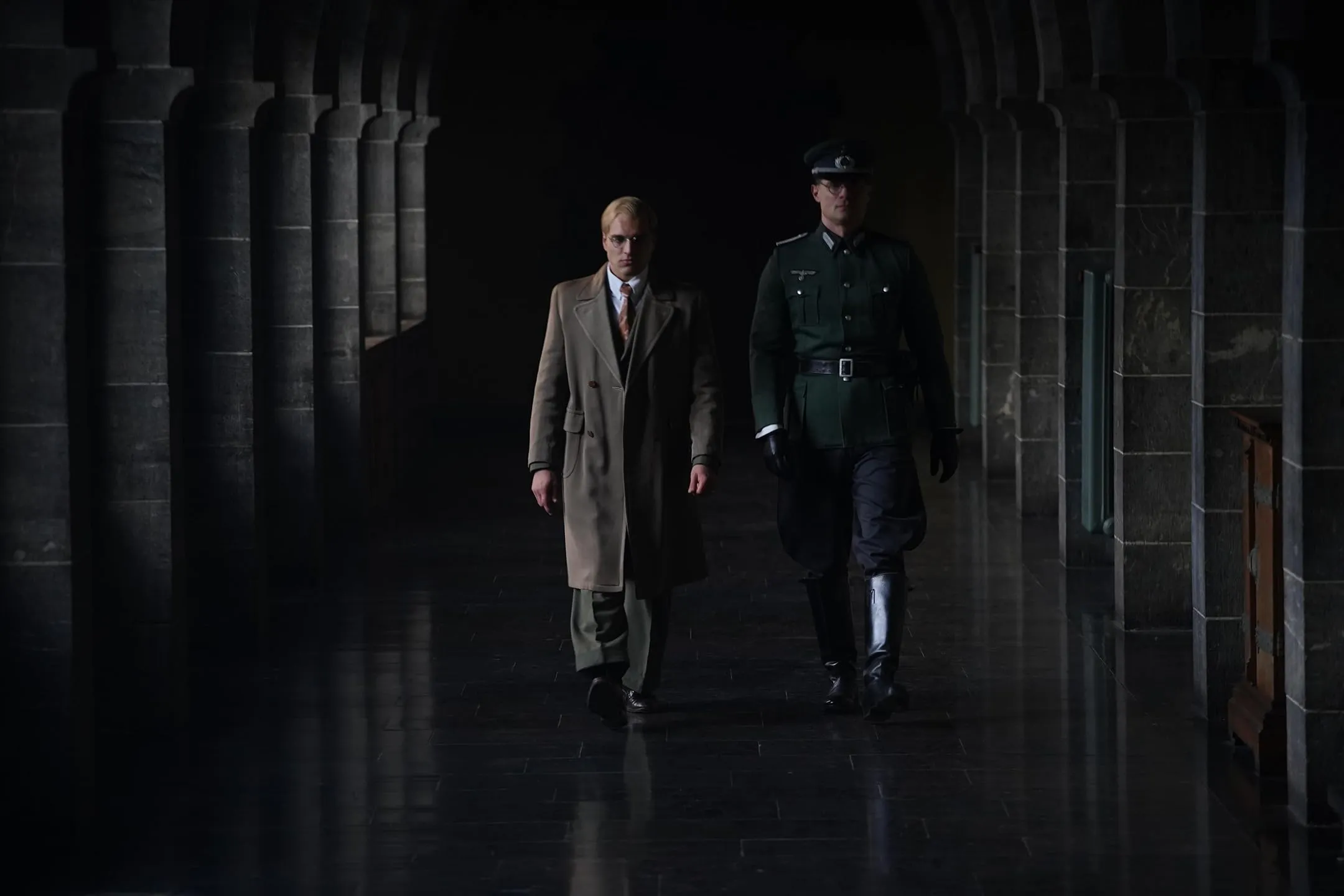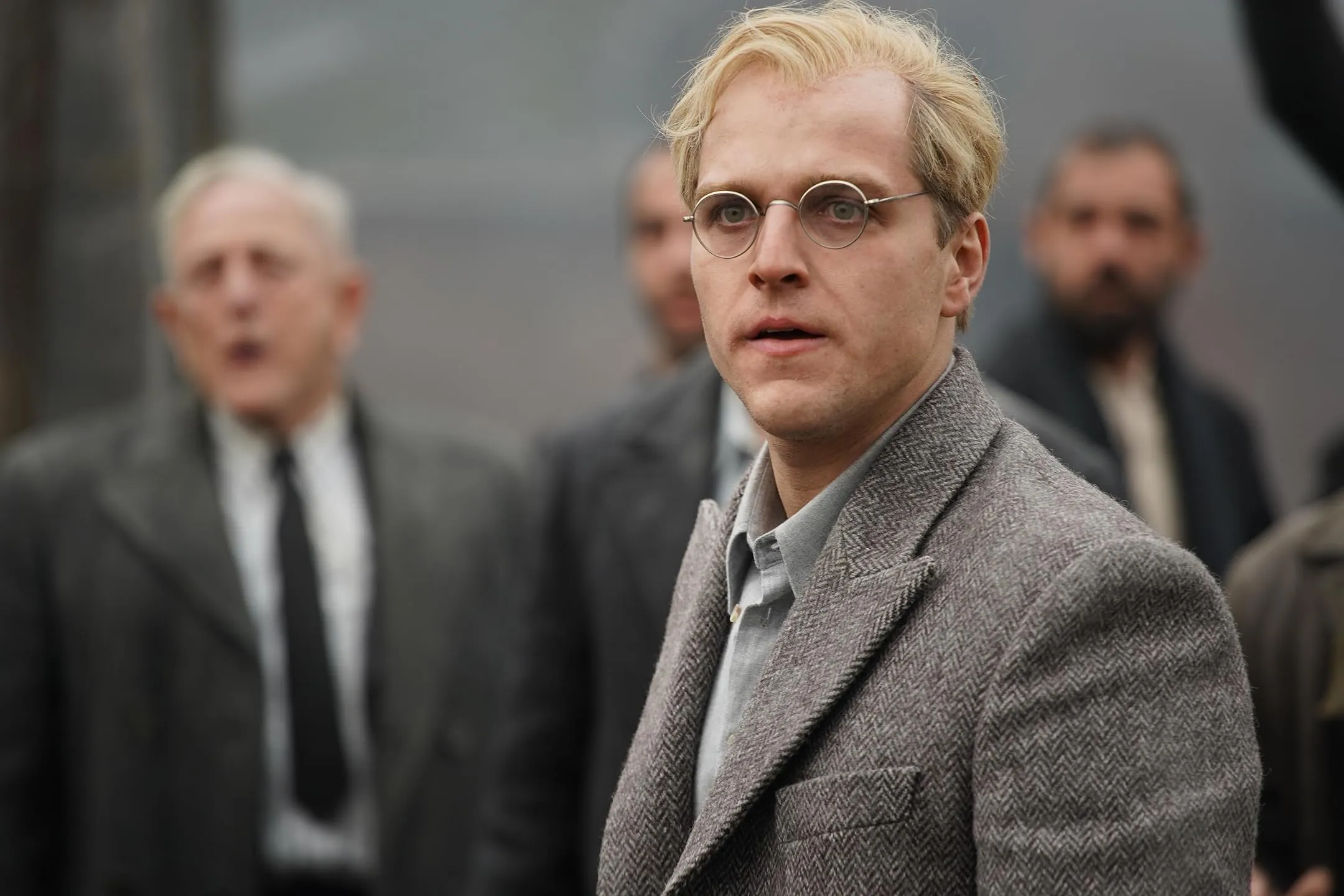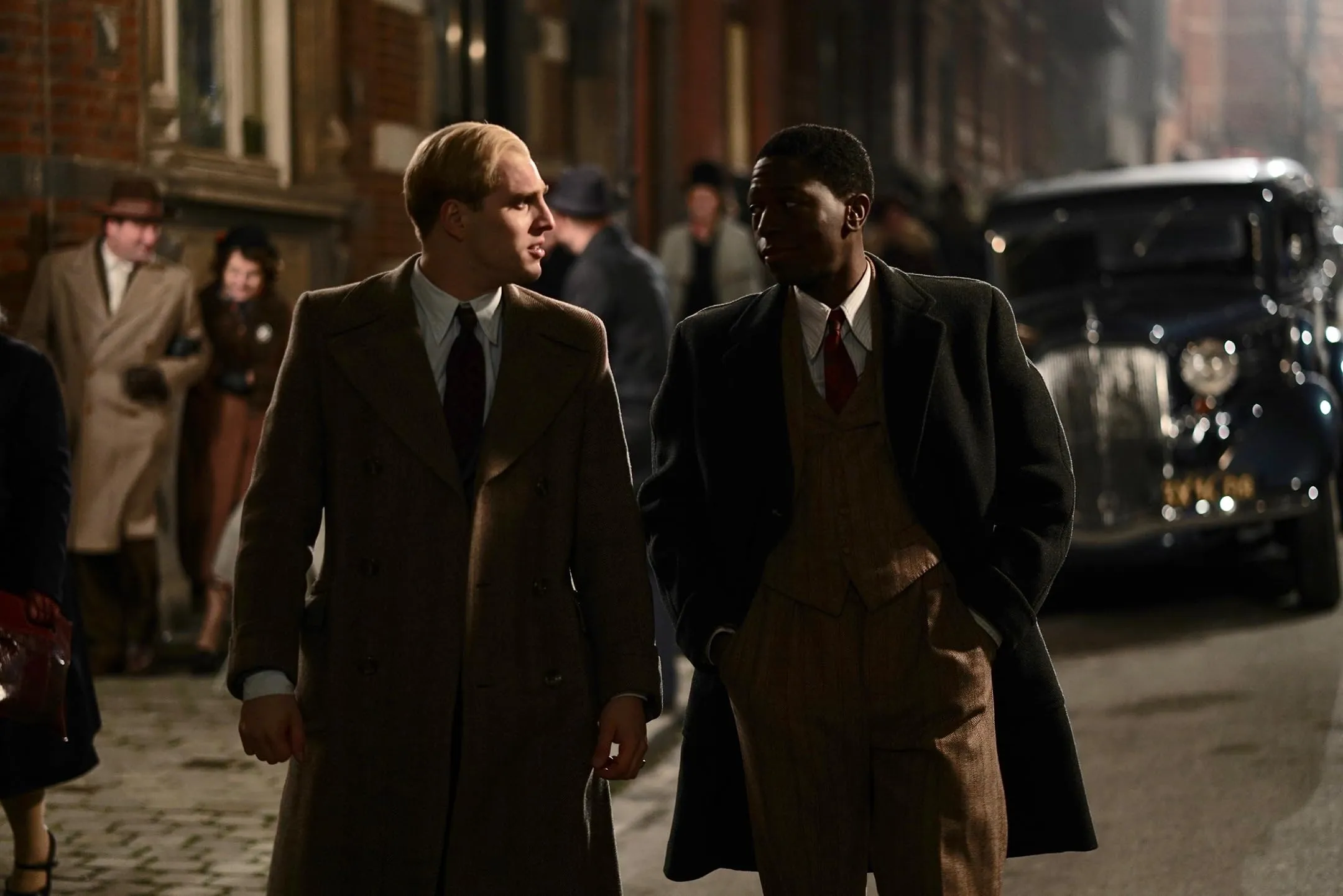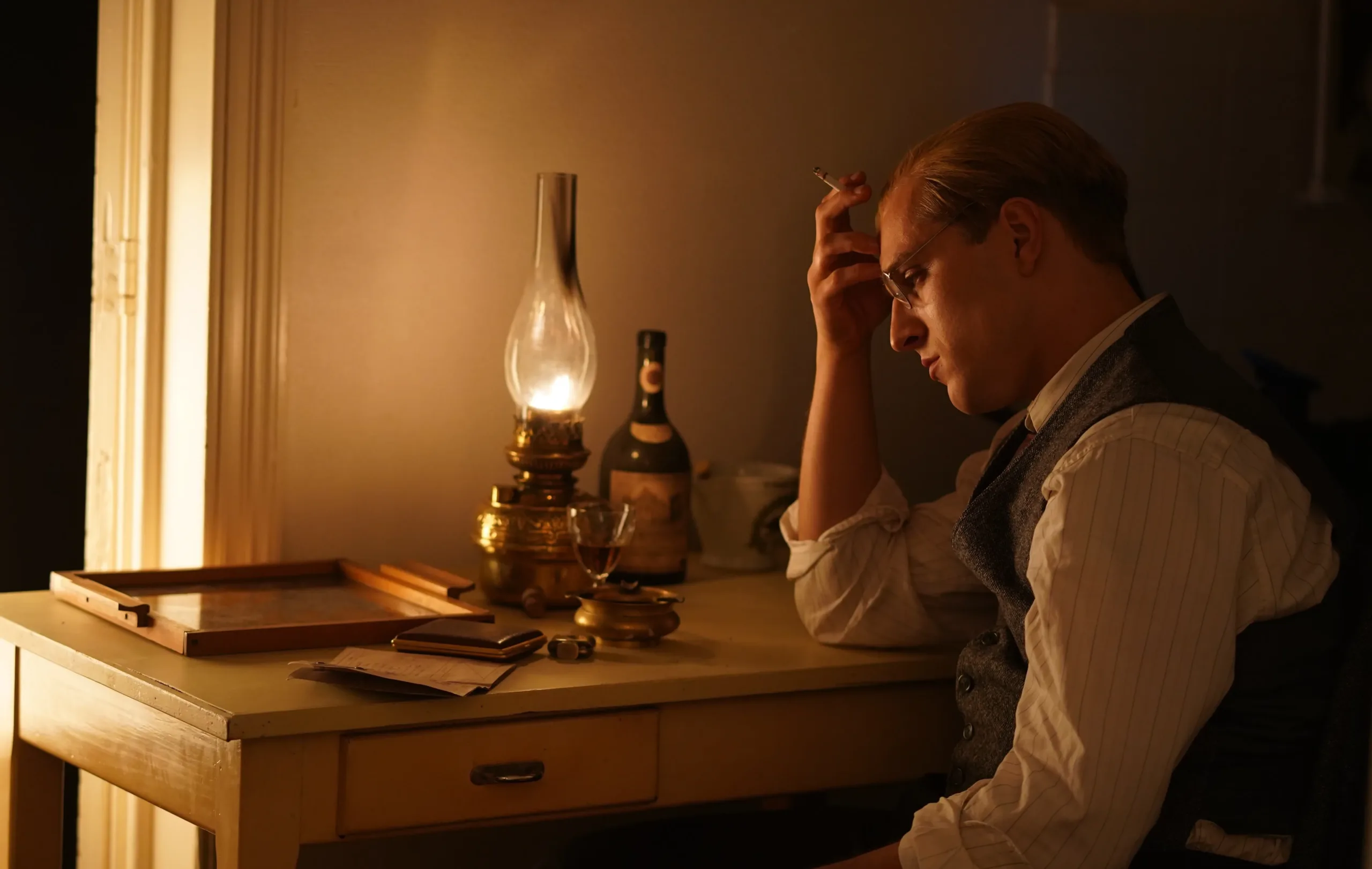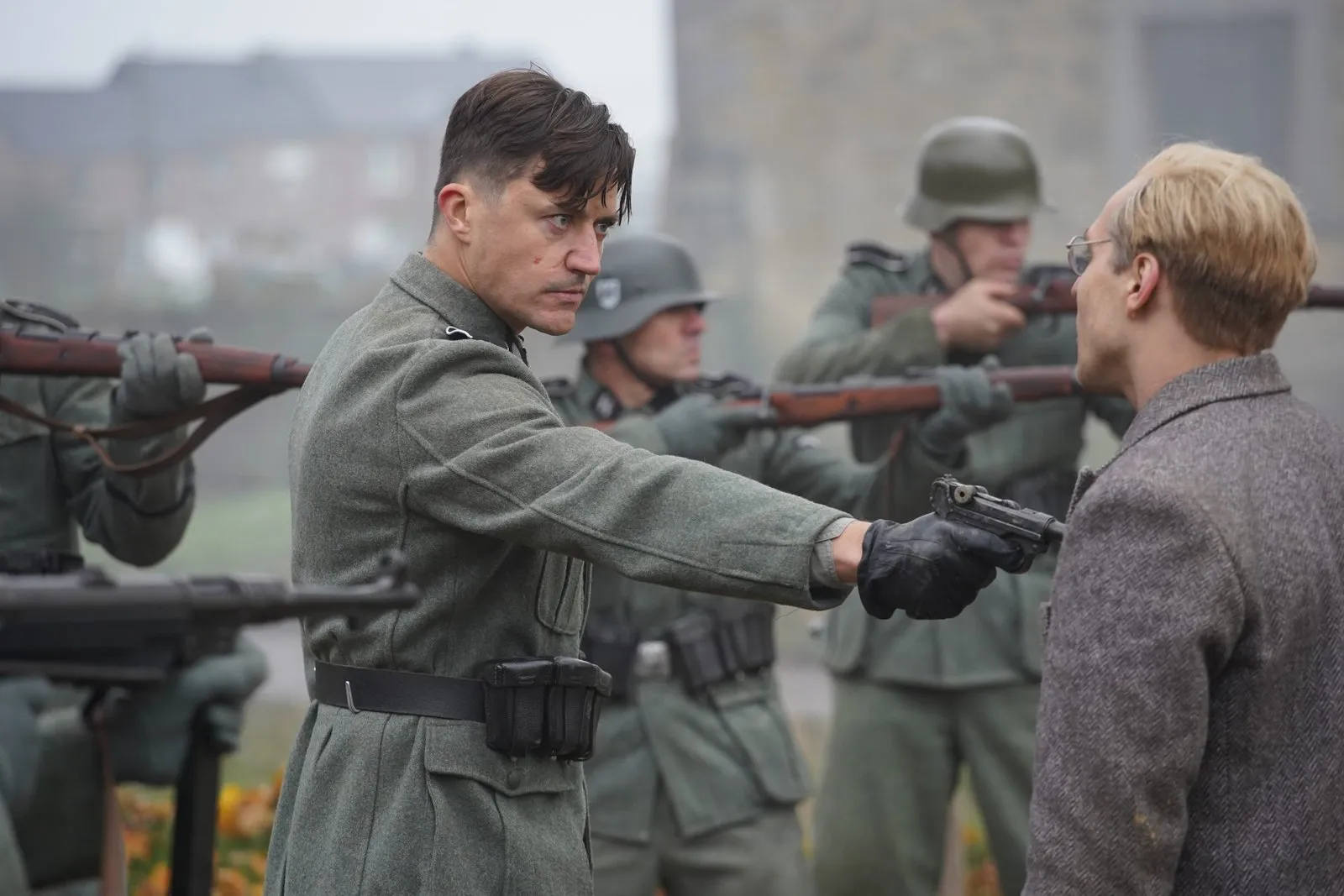“Bonhoeffer: Pastor. Spy. Assassin.” emerges as a dramatic biographical drama that follows Dietrich Bonhoeffer’s amazing life as a German Lutheran priest who dared to oppose the Nazi government during one of humanity’s darkest times. Set in pre-World War II Germany, the film examines how a very religious thinker evolved from a contemplative theologian to an active resistance fighter eager to confront Hitler’s totalitarian machinery.
The movie is more than just a historical recounting; it is a compelling reflection on moral courage, personal conviction, and the incredible decisions people make when confronted with systemic evil. The film provides a fascinating narrative that resonates far beyond its historical setting, depicting Bonhoeffer’s drastic journey from a wealthy intellectual to a potential assassin plotting against Hitler.
More than a simple biographical sketch, Bonhoeffer illuminates how ordinary people can transform into extraordinary resisters when confronted with profound moral challenges, making its story urgently relevant to contemporary audiences grappling with issues of social justice and individual responsibility.
Defiance in Dark Times: The Remarkable Journey of Dietrich Bonhoeffer
Dietrich Bonhoeffer’s life reads like a riveting moral-transformation tale. Born into a famous German family, he grew up in a world of intellectual luxury, safe from the grim realities that would soon destroy Europe. His brother Walter’s early death in World War I sowed the seeds of his understanding of human frailty and the disastrous implications of unrestrained nationalism.
His life took an unexpected turn during his time at Union Theological Seminary in New York. Far from being your standard theological student, Bonhoeffer encountered a world beyond his guarded European milieu. In Harlem’s lively streets, he immersed himself in African American culture, visiting jazz clubs and attending the Abyssinian Baptist Church. These events were profound, exposing him to systematic prejudice and developing his sense of social justice.
Bonhoeffer returned to Germany and observed the insidious growth of Nazi ideology. He watched in dismay as Christian institutions began to undermine their moral roots, with some churches even embracing a Nazified version of the Bible that reinvented Jesus as an Aryan hero. His resistance was more than just political; it was also theological, questioning the church’s complicity with a dictatorship based on hatred and oppression.
As Nazi cruelty increased, Bonhoeffer’s moral arithmetic changed radically. The pacifist minister found himself contemplating the unthinkable: joining a plot to assassinate Hitler. His now-famous phrase captures this tremendous moral conflict: “Will God forgive us if we do this?” he wondered. Then, with equal zeal, “Will God forgive us if we don’t?”
Finally, Bonhoeffer’s resistance cost him everything. Arrested by the Gestapo and imprisoned in the Buchenwald concentration camp, he spent his last days writing and contemplating. He was executed in 1945, just weeks before the conclusion of the war, as a martyr for human dignity and moral courage.
His legacy extends beyond his untimely death. Bonhoeffer became a significant symbol of resistance to Nazism, demonstrating how an individual conscience can stand up to systemic evil. He demonstrated that true faith is not passive acquiescence but active resistance to injustice.
Souls of Resistance: Performances that Breathe Life into Bonhoeffer’s Story
Jonas Dassler elevates Dietrich Bonhoeffer from a historical character to a deeply human protagonist. His acting captures the subtle path of a man confronted with significant moral dilemmas. Dassler portrays Bonhoeffer with extraordinary nuance, alternating between moments of privileged intellectual assurance, paralyzing terror, and, finally, steadfast courage.
He brings to life a character who is not a one-dimensional hero but rather a multifaceted individual who is constantly balancing his pacifist religious upbringing with the terrible political reality of Nazi Germany.
The film’s supporting characters enhance Bonhoeffer’s narrative. David Jonsson’s Frank Fisher serves as a critical trigger, exposing Bonhoeffer to the terrible reality of racial injustice during his time in Harlem. Their friendship reflects Bonhoeffer’s evolving worldview, demonstrating how personal ties may radically alter one’s perception of institutional oppression.
Clarke Peters’s captivating performance as Reverend Powell Sr. adds gravity to a small role. His character significantly impacts Bonhoeffer’s transforming American experience, shaping the young theologian’s ideas of social justice and moral opposition.
August Diehl’s portrayal of Martin Niemöller offers another layer to the resistance narrative. Their partnership serves as a microcosm of the larger intellectual and spiritual struggle against Nazi ideology, emphasizing the personal costs made by those who chose to speak out.
The ensemble cast brings the Bonhoeffer family dynamics to life astonishingly. Actors portraying Bonhoeffer’s parents and siblings demonstrate the personal hardships and emotional terrain of a family living under rising Nazi pressure. Each character feels thoughtfully constructed, rejecting basic heroic stereotypes in favor of real human beings stuck in an exceptional historical period.
What emerges is more than just a biographical portrait; it is a profound investigation of moral courage, human decision-making, and the complicated ways ordinary individuals can transform into remarkable resisters when confronted with systemic injustice.
Echoes of Conscience: Moral Battles Beyond Time
“Bonhoeffer” is more than just a historical drama; it’s a fascinating reflection on the fine line between moral compromise and remarkable courage. At its core, the film investigates how regular people might become resistance fighters when challenged with systemic evil.
The movie’s most unsettling discovery is its depiction of religious manipulation. The Nazis did not simply desire political power; they purposefully changed religious scriptures, resulting in a “Nazified Bible” that reinvented Jesus as an Aryan hero and inserted rules requiring obedience to Hitler. This planned distortion of the spiritual narrative is a strong metaphor for how dictatorship corrupts core human ideals.
Bonhoeffer’s experience eloquently demonstrates how personal transformation occurs. His experiences in Harlem’s African American churches exposed the cruel mechanics of systemic racism, drawing stark parallels between American racial oppression and Nazi Germany’s rising anti-Semitism. These meetings were more than merely scholarly; they were very personal, substantially altering his vision of social justice.
When does pacifism become complicity? The film’s most interesting philosophical topic emerges from Bonhoeffer’s moral quandary. His disturbing question is, “Will God forgive us if we do this?” “Will God forgive us if we don’t?” transcends its historical context, connecting directly to current efforts against oppression.
Finally, “Bonhoeffer” functions as a timely warning. It reminds us that fascism does not grow suddenly but rather over time through manipulation, fear, and the gradual erosion of individual moral opposition. The movie implies that true courage is not about great displays but rather about making difficult decisions when silence is comparable to betrayal.
The narrative, a gripping reminder that democratic norms require ongoing, attentive protection, has resonance far beyond its 1940s setting.
Weaving History: Crafting Bonhoeffer’s Cinematic Narrative
Todd Komarnicki treats Bonhoeffer’s story with an ambitious if not always cohesive, narrative method. His directing style includes a time-traveling structure reflecting memory’s broken nature and resistance. The film’s non-linear narrative is more than a creative choice; it intentionally attempts to convey the psychological complexities of living under authoritarian rule.
The screenplay strikes a balance between historical documentation and dramatic fiction. Komarnicki manages to build gripping dramatic tension while occasionally sliding into moments of overdone language. His most successful technique entails juxtaposing seemingly unpredictable moments, like a near-miss Hitler assassination attempt and Bonhoeffer’s passionate anti-Nazi lecture in a Harlem church.
The screenplay’s true strength lies in its ability to make historical events feel vitally modern. Komarnicki feels that great historical theater is about expressing timeless human truths rather than flawlessly recreating events. The fragmentary narrative represents Bonhoeffer’s own splintered experience—a life continuously interrupted by political brutality.
There are a few moments that feel overly dramatic, and the discussion periodically deviates into territory that seems more like declarations than genuine conversation. However, these minor flaws do not completely undercut the film’s powerful central message about moral struggle.
Komarnicki’s directing implies that history is a rich tapestry in which past and present always intersect—an idea that makes “Bonhoeffer” feel less like a historical piece and more like a living, breathing meditation on courage.
Painting Shadows of Resistance: Visual Storytelling in Bonhoeffer
The film’s visual setting brings Bonhoeffer’s world to life, transforming historical reconstruction into an intense emotional experience. Cinematographers create a visual narrative that alternates between the warm, vivid tones of 1930s Harlem and the cold, desaturated palette of Nazi Germany, serving as a chromatic metaphor for the era’s sharp moral differences.
The production design demonstrates a wonderful attention to historical detail. Each frame feels realistically textured from Bonhoeffer’s family home to the raw, improvisational energy of Harlem jazz clubs. The designers capture not only visual precision but also the emotional warmth of each place.
The soundtrack becomes another important plot aspect. Jazz is more than background music; it’s a potent narrative tool representing freedom, improvisation, and resistance to strict institutional oppression. The musical choices reflect Bonhoeffer’s philosophical journey, which was surprising, passionate, and provocative.
The film’s emotional depth is heightened by sound design, which employs sonic landscapes that alternate between moments of personal meditation and heartbreaking tension. Subtle aural details—the echo of footfall in Nazi halls, the distant rumbling of approaching conflict—create a palpable feeling of historical urgency.
More than just a technological success, the film’s sensory approach elevates historical recording to a wonderfully immersive experience.
Resonating Courage: Why Bonhoeffer Matters Now
“Bonhoeffer” emerges as more than just a biographical drama; it’s a compelling lens through which to explore contemporary moral issues. Despite certain narrative inconsistencies, the film’s profound portrayal of resistance to institutional oppression transcends historical bounds.
Jonas Dassler’s outstanding performance, paired with the film’s unwavering investigation of moral complexity, elevates what could have been a simple historical record to a visceral, compelling narrative. The movie urges audiences to understand the fragility of democratic values and the ongoing importance of individual moral courage in addition to honoring Bonhoeffer’s legacy.
While not a perfect cinematic experience, the film effectively achieves its fundamental goal of illustrating how ordinary people may become exceptional resisters when presented with profound ethical dilemmas. It is a powerful reminder that silence in the face of injustice is a form of collaboration.
In today’s global world, where democratic ideals are under increasing attack, “Bonhoeffer” is more than just a historical reflection; it is a timely and urgent appeal to moral consciousness.
The Review
Bonhoeffer: Pastor. Spy. Assassin.
"Bonhoeffer" is a captivating, thought-provoking biographical play that goes beyond conventional historical narratives. By addressing Dietrich Bonhoeffer's moral journey via a multifaceted lens, the film gives more than just a historical reenactment; it is a profound meditation on courage, resistance, and the complex choices individuals face under repressive regimes. The film's outstanding performances, particularly Jonas Dassler's transforming portrayal, raise it beyond typical biographical dramas, albeit occasionally struggling with narrative intricacy and moments of heavy-handed speech. Its relevance to present social and political concerns elevates it above a historical chronicle to an urgent statement on moral resistance. The movie captures the internal and external challenges of a man who transitioned from a wealthy theologian to a resistance fighter, illustrating the complex psychological landscape of standing up to systemic evil.
PROS
- Powerful lead performance by Jonas Dassler
- Nuanced exploration of moral courage
- Compelling historical narrative
- Thought-provoking themes of resistance
- Strong supporting cast performances
- Innovative non-linear storytelling
CONS
- Occasionally disjointed narrative structure
- Some heavy-handed dialogues
- Potentially challenging non-linear timeline
- Moments of melodramatic presentation









































